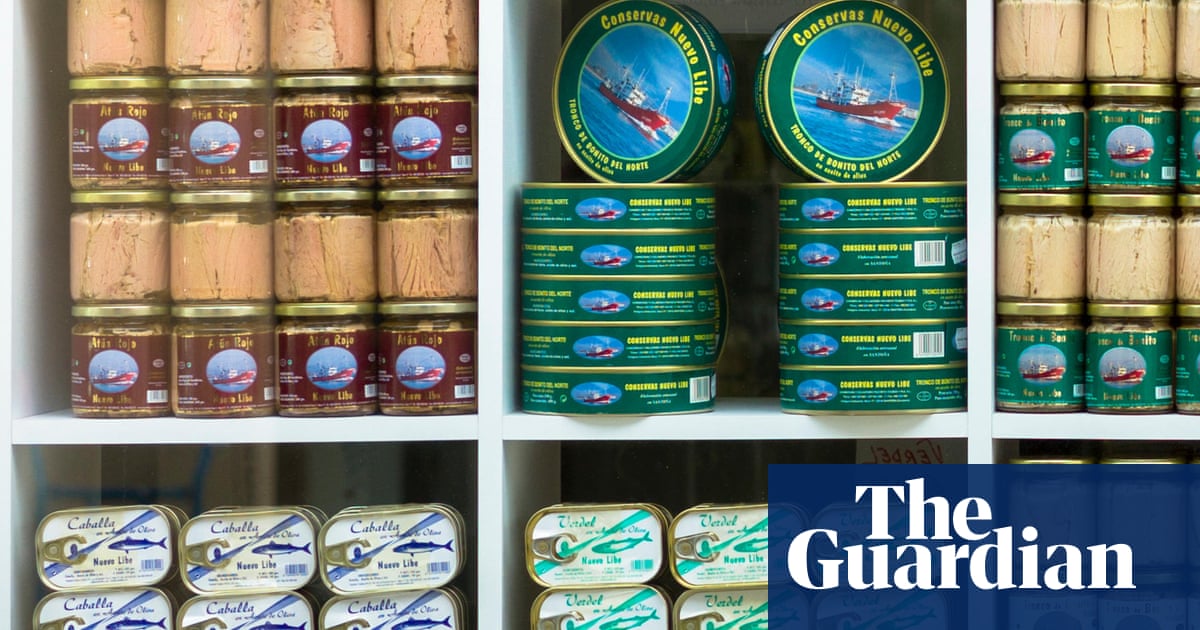Forget designer fashion and jewellery, trendy versions of pantry staples such as extra virgin olive oil, balsamic vinegar and tinned fish have become middle-class lust objects for home cooks, according to a new report.
A food cupboard stocked with chic glass bottles, jars and decorative tins (in the front row at least) has become a status symbol, according to Waitrose’s annual food and drink report.
For example, demand for premium extra virgin olive oil has grown by 15% this year, while for apple cider vinegar the figure is 6%. Meanwhile, sales of Cornish salt flakes are up by 79% year on year.
Elinor Griffin, the supermarket’s oils & vinegar buyer, said people were “proudly showcasing” their pantry staples in their kitchens. “Whether it’s a gorgeous bottle of olive oil or raw apple cider vinegar, or artisanal flavoured salts, it’s a great way to spark conversation and show off your chef credentials,” she said.
Indeed, tastemakers at House & Garden magazine also recently mused over whether a trendy bottle of olive oil is the “new wine” when taking a gift to a dinner party, at a time when people are hosting friends at home, rather than eating out.
The report highlighted the rise of shortcut cooking-from-scratch as the return to the office means people turn to quality ready-made marinades, sauces and spice blends to save time.
Cooking from scratch has “soared in popularity this year”, according to Waitrose. Over half (55%) of customers preferred a home-cooked meal over a takeaway and 46% claimed to scratch-cook every day, according to a poll of more than 3,200 customers. However, with time short after work they do not want to tackle a recipe that requires a long list of niche ingredients.
“We’ve looked at how long people are prepared to cook for on a weekday evening and we’ve found that 30 minutes is a real sweet spot,” said Zoë Simons, senior brand development chef.
This has fuelled demand for the pre-made marinades and sauces it sells from famous names such as Yotam Ottolenghi and the two Michelin-starred restaurant Gymkhana. One of Ottolenghi’s £4 spice blends or sauces provided a shortcut as the meal would “require minimal washing up and reduce the need for umpteen ingredients which take up cupboard space”, Simons said.
Concerns about ultra-processed food (UPF) has inspired 61% of home cooks surveyed to make something themselves rather than settle for a ready meal. Food lovers were also more interested in the provenance of store-cupboard stalwarts, with social media making them increasingly brand-savvy.
Nothing in the food cupboard is safe from gentrification. While you can still buy much cheaper versions of everything, staples ranging from sardines to chickpeas, nuts, honey, vinegar and even salt are among the foods being “yassified”, to use the buzzword of the day.
after newsletter promotion
After several difficult harvests, the soaring cost of olive oil means it has already become a luxury item in many households. But while you can pick up 500ml of extra virgin olive oil for £6 in Waitrose, or the equivalent of £12 a litre, you can also spend a lot more. At £25 for 750ml, the Colonna brand promises “scents of sweet tomatoes and wet grass”. Another Italian name, Laudemio Frescobaldi – priced at £22 for just 250ml (the equivalent of £88 a litre) – is emerald green with notes of “freshly mown grass, thistle and artichoke”.
Other hot pantry brands include Belazu and Citizens of Soil. A bottle of Waitrose’s no-frills Essentials brand balsamic vinegar is £1.50 for 250ml while Belazu’s organic version is £18.25 for the same size. Willy’s organic probiotic apple cider vinegar, at nearly £8, is described as a “cult product”.
Even the once unloved canned fish selection has not been spared. Ortiz sardines, which come in an eye-catching yellow tin, are having a moment despite costing about £6 instead of £1 for the supermarket’s cheapest own-brand equivalent.
After several years of squeezed household budgets James Bailey, the supermarket’s executive director, said it had seen a “shift in our customer shopping habits this year”.
“Cost of living still counts, but we’re seeing the beginning of a return to indulgence, with many spending more on key parts of their weekly shop – particularly bread, meat and dairy,” he said.

